In a previous post, I stated my belief that characters are pretty much only interesting if they’re trying to accomplish something. It’s incredibly common, in an unpublished manuscript, to get a good long look at a character’s life before—before everything changes, before they meet that interesting person, before tragedy strikes, before they find their passion. Nothing wrong with that, but it’s also incredibly common for that character to pretty much just bounce around while stuff happens around them, going where they’re told, doing a lot of emoting, but pretty much not trying to have an effect on their lives or on the world around them. I maintain that it’s hard to get interested in a character who is just observing the world. Interesting characters are movers and shakers. Even when they’re unhappy or unsuccessful, they’re trying to do something. If not, why the heck would we want to spend six to eight hours with them?
In order to fully convince you that I’m not pulling stuff out of my ear with this emphasis on character goals, I’m going to look through a random assortment of popular books and show that this is a technique that’s extremely common and effective in successful, published novels. Wherever possible, I’ll link to the Google Books preview of the book or to the Amazon page if there’s a Look Inside feature, so you can read the opening pages for yourself if you’re so inclined. Hopefully the links will work. If you’re not buying my argument yet, then go and see for yourself.
Incidentally, I’m also pointing you in the direction of some pretty good YA and MG books. If your interest in the book gets piqued and you want to buy a copy, the photo will be a link to Powell’s.
So without further ado, here we go:
Uglies, by Scott Westerfeld
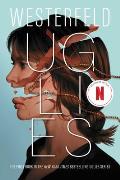 Uglies begins with about half a page of sarcastic, teen-voicey description of an ugly sky. And then immediately, while we’re still on the first page, we have a protagonist with a goal. Tally Youngblood is waiting for darkness, pretending to go to sleep, and planning . . . something. We don’t know what it is yet, but it doesn’t matter. Within one page we know that Tally is someone who acts. Is she an unhappy teen? Yes—her best friend has moved on to New Pretty Town but she has not yet—but she’s not listlessly drifting from event to event. “Maybe this was a stupid plan, but anything was better than . . . feeling sorry for herself.” Indeed. As we keep reading, we learn that her immediate goal is to sneak over to New Pretty Town, where Uglies like her are not allowed, to spy on the festivities and seek out her friend Peris.
Uglies begins with about half a page of sarcastic, teen-voicey description of an ugly sky. And then immediately, while we’re still on the first page, we have a protagonist with a goal. Tally Youngblood is waiting for darkness, pretending to go to sleep, and planning . . . something. We don’t know what it is yet, but it doesn’t matter. Within one page we know that Tally is someone who acts. Is she an unhappy teen? Yes—her best friend has moved on to New Pretty Town but she has not yet—but she’s not listlessly drifting from event to event. “Maybe this was a stupid plan, but anything was better than . . . feeling sorry for herself.” Indeed. As we keep reading, we learn that her immediate goal is to sneak over to New Pretty Town, where Uglies like her are not allowed, to spy on the festivities and seek out her friend Peris.
Now here’s what I was saying about tide-me-over goals: Tally’s goal for most of Uglies will be to infiltrate The Smoke and report on their location, so that she can finally achieve her transformation to prettiness. But at the beginning of the novel, we don’t know what any of that means or why that’s so important for her. She’s not ready for that big overarching goal yet. So instead, she has a more immediate goal, and it’s not worldshaking—she just wants to find her friend, reassure herself that he hasn’t forgotten her, and have a little fun. It’s something to keep my interest while the pieces of the major conflict are being set up. It also lets me know about Tally’s character without coming out and telling what kind of kid she is: Tally is a noncomformist, a rule-breaker, and someone who doesn’t quite fit in with the way her society is set up—even if she hasn’t quite figured all this out about herself. Think how much more interesting it is to see her act on these traits, instead of a scene where she’s maybe walking around the dorm thinking about how unhappy she is because she doesn’t quite fit in.
Divergent, by Veronica Roth
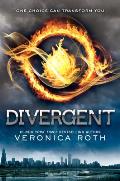 It’s a little harder to see what I’m talking about here. In the first scene, Tris is having her hair cut by her mom. In the second scene, she rides a bus to school. So where are the goals?
It’s a little harder to see what I’m talking about here. In the first scene, Tris is having her hair cut by her mom. In the second scene, she rides a bus to school. So where are the goals?
I say they’re there, but they’re subtle. Note how Tris sneaks a glance at the mirror even though she’s not supposed to. Note the exchange with her mother:
“Are you nervous?”
I stare into my own eyes for a moment. Today is the day of the aptitude test that will show me which of the five factions I belong in. And tomorrow, at the Choosing Ceremony, I will decide on a faction; I will decide the rest of my life; I will decide to stay with my family or abandon them.
“No,” I say. “The tests don’t have to change our choices.”
“Right.” She smiles. “Let’s go eat breakfast.”
There’s quite a bit of subtext here. Do you get the feeling that question was a test? Do you get the feeling Tris doesn’t quite believe her answer? Do you get the feeling that she somehow passed the test anyway?
Right before the scene break a little revelation is snuck in, one that could easily be missed as Tris goes back to being nervous and unsure about her decision in the next scene: On these mornings when my brother makes breakfast, and my father’s hand skims my hair as he reads the newspaper, and my mother hums as she clears the table—it is on these mornings that I feel guiltiest for wanting to leave them.
She does want something. She already knows, deep down inside, that she wants to betray her faction and choose another. But more immediately, she wants to know that she will be okay when she does this. That her brother and father and mother won’t despise her. That she’s not a freak for wanting something else or for being nervous right now. Consider her interaction with her brother in the next scene, where she asks if he’s worried about the test results:
He raises an eyebrow at me. “Are you?”
I could tell him I’ve been worried for weeks about what the aptitude tests will tell me—Abnegation, Candor, Erudite, Amity, or Dauntless?
Instead I smile back and say, “Not really.”
He smiles back. “Well . . . have a good day.”
I walk toward Faction History, chewing on my lower lip. He never answered my question.
Can a character without a goal of her own lie?
I will keep reading this because I know Tris has a secret. She does have a short term goal: to keep her secret, even if it means lying to those closest to her, and even if it means lying to herself. The indications are subtle, but they are there.
Bridge to Terabithia, by Katherine Paterson
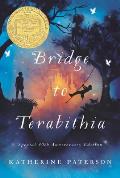 I couldn’t ask for a better example of what I’m talking about. When the novel opens, Jess is sneaking outside in the early morning hours to run. Why? Because fifth grade will begin in a matter of days, and he is training to be the fastest runner in the school. An absolutely clear, concrete goal that has little to do with what the story is about. But it’s going to take a while to get into the story proper—Jess must meet Leslie and get to know her. In the meantime, this minor goal gives me something to care about as a reader.
I couldn’t ask for a better example of what I’m talking about. When the novel opens, Jess is sneaking outside in the early morning hours to run. Why? Because fifth grade will begin in a matter of days, and he is training to be the fastest runner in the school. An absolutely clear, concrete goal that has little to do with what the story is about. But it’s going to take a while to get into the story proper—Jess must meet Leslie and get to know her. In the meantime, this minor goal gives me something to care about as a reader.
Enclave, by Ann Aguirre
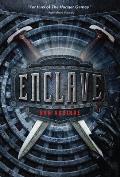 Another post-apocalyptic/dystopian society, full of rules and traditions we don’t know that we need to be immersed in. The story opens on the protagonist’s naming day, and within the first few pages we learn that one or more holocausts have happened since our time, and that humans don’t live very long, and that they live in tiny, almost feral communities. We also get some physical description. Pretty typical worldbuilding stuff right? But the protagonist still has a goal: in her naming ceremony she will be sliced with a razor, and she is focused on not screaming out or otherwise showing weakness. Again, some sign that we are following a protagonist who wants to direct the course of the events she is involved in.
Another post-apocalyptic/dystopian society, full of rules and traditions we don’t know that we need to be immersed in. The story opens on the protagonist’s naming day, and within the first few pages we learn that one or more holocausts have happened since our time, and that humans don’t live very long, and that they live in tiny, almost feral communities. We also get some physical description. Pretty typical worldbuilding stuff right? But the protagonist still has a goal: in her naming ceremony she will be sliced with a razor, and she is focused on not screaming out or otherwise showing weakness. Again, some sign that we are following a protagonist who wants to direct the course of the events she is involved in.
Skellig, by David Almond
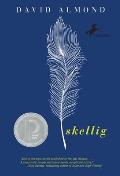 This novel opens with another typical situation for YA and MG stories: the kid arriving in the new house. And sure, we spend a couple pages of pretty typical Unhappy-kid-being-shown-around-by-annoying-overenthusiastic-adult. But that’s all: just a couple of pages, and then Michael is exploring the dilapidated garage, venturing into a building he has expressly been forbidden from entering for the time being. Here is a kid who doesn’t wait for the story to come to him, and a kid who doesn’t take “No”—or closed doors—for an answer.
This novel opens with another typical situation for YA and MG stories: the kid arriving in the new house. And sure, we spend a couple pages of pretty typical Unhappy-kid-being-shown-around-by-annoying-overenthusiastic-adult. But that’s all: just a couple of pages, and then Michael is exploring the dilapidated garage, venturing into a building he has expressly been forbidden from entering for the time being. Here is a kid who doesn’t wait for the story to come to him, and a kid who doesn’t take “No”—or closed doors—for an answer.
The Mysterious Benedict Society, by Trenton Lee Stewart
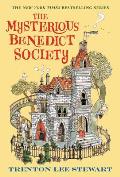 This novel opens with Reynie Muldoon in the middle of the series of aptitude tests that will launch him into the larger story. His goal? To do well on the tests, so that he can have some more educational opportunities than his orphanage provides.
This novel opens with Reynie Muldoon in the middle of the series of aptitude tests that will launch him into the larger story. His goal? To do well on the tests, so that he can have some more educational opportunities than his orphanage provides.
Things Not Seen, by Andrew Clements
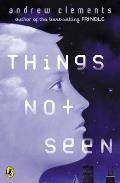 This is a novel about (*wince*) an adolescent boy who turns invisible. The novel pretty much begins with the inciting incident—Bobby steps out of the shower only to discover that he can’t see himself in the mirror. He goes downstairs to tell his parents what has happened, but they don’t believe him—they think he’s playing a prank. Bang, a goal: he must convince his parents he really has turned invisible.
This is a novel about (*wince*) an adolescent boy who turns invisible. The novel pretty much begins with the inciting incident—Bobby steps out of the shower only to discover that he can’t see himself in the mirror. He goes downstairs to tell his parents what has happened, but they don’t believe him—they think he’s playing a prank. Bang, a goal: he must convince his parents he really has turned invisible.
Ship Breaker, by Paolo Bacigalupi
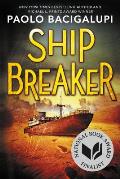 This highly decorated new post-apocalyptic YA begins with Nailer, the young protagonist, scavenging copper wire and aluminum staples from a beached ship. He is stressed about whether he will make quota—whether he will be judged too big and slow to continue in this job, how soon it will be before the hungry girl who’s eager to take his job away from him will be better suited for it than he is, and how he will survive when he finally does lose this job. I’ve only read a little ways into this book so far, but do you think Bacigalupi has my attention? Absolutely.
This highly decorated new post-apocalyptic YA begins with Nailer, the young protagonist, scavenging copper wire and aluminum staples from a beached ship. He is stressed about whether he will make quota—whether he will be judged too big and slow to continue in this job, how soon it will be before the hungry girl who’s eager to take his job away from him will be better suited for it than he is, and how he will survive when he finally does lose this job. I’ve only read a little ways into this book so far, but do you think Bacigalupi has my attention? Absolutely.
How to Ditch Your Fairy, by Justine Larbalestier
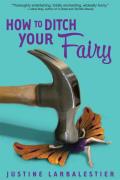 Larbalestier is pretty much my favorite YA writer, but I’ll limit myself to just looking at one of her books. In the world of this novel, almost everybody has a “fairy” of some sort. You can’t see them, but each fairy has one particular specialization and you pretty much can’t miss their effects. Maybe you have a always-finding-loose-change fairy, or an all-boys-fall-in-love-with-you fairy, or a never-gets-into-trouble fairy. When the novel opens, Charlie is shopping with her best friend Rochelle, who has a shopping fairy. Her goal is to have some of Rochelle’s good fortune spill over onto her, and to be able to get a good bargain on a “doos outfit.” Mundane stuff, but it’s something. When she is thwarted, I have immediate sympathy for her. And in passing she and her friend slip in a comment about what her main goal is going to be: getting rid of her own fairy, an always-finds-great-parking-spaces fairy.
Larbalestier is pretty much my favorite YA writer, but I’ll limit myself to just looking at one of her books. In the world of this novel, almost everybody has a “fairy” of some sort. You can’t see them, but each fairy has one particular specialization and you pretty much can’t miss their effects. Maybe you have a always-finding-loose-change fairy, or an all-boys-fall-in-love-with-you fairy, or a never-gets-into-trouble fairy. When the novel opens, Charlie is shopping with her best friend Rochelle, who has a shopping fairy. Her goal is to have some of Rochelle’s good fortune spill over onto her, and to be able to get a good bargain on a “doos outfit.” Mundane stuff, but it’s something. When she is thwarted, I have immediate sympathy for her. And in passing she and her friend slip in a comment about what her main goal is going to be: getting rid of her own fairy, an always-finds-great-parking-spaces fairy.
Okay for Now, by Gary D. Schmidt
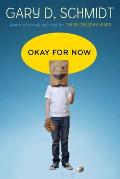 I swear Doug Swieteck must be cousins with Chris Westbrook, the protagonist of my novel Vanishing Act. This is the kind of story I was trying to write; only time will tell if I’ve succeeded. Anyway, this novel begins with a bit of background, but in the flashback you still get a goal: Doug is trying to prevent his bully of an older brother from stealing his cap—a personal, autographed gift from Yankee first baseman Joe Pepitone. Read this and tell me you aren’t already rooting for this kid:
I swear Doug Swieteck must be cousins with Chris Westbrook, the protagonist of my novel Vanishing Act. This is the kind of story I was trying to write; only time will tell if I’ve succeeded. Anyway, this novel begins with a bit of background, but in the flashback you still get a goal: Doug is trying to prevent his bully of an older brother from stealing his cap—a personal, autographed gift from Yankee first baseman Joe Pepitone. Read this and tell me you aren’t already rooting for this kid:
He came in at night when I was asleep and whipped my arm up behind my back so high I couldn’t even scream it hurt so bad and he told me to decide if I wanted a broken arm or if I wanted to give him Joe Pepitone’s baseball cap. I decided on the broken arm. Then he stuck his knee in the center of my spine and asked if I wanted a broken back along with the broken arm, and so I told him Joe Pepitone’s cap was in the basement behind the oil furnace.
It wasn’t, but he went downstairs anyway. That’s what a chump he is.
How can you not love a kid who’d rather take his chances with a broken arm than give up his signed Yankee ballcap?
The Shifter, by Janice Hardy
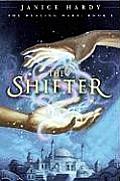 I think this may be my favorite opening ever:
I think this may be my favorite opening ever:
Stealing eggs is a lot harder than stealing the whole chicken. With chickens, you just grab a hen, stuff her in a sack, and make your escape. But for eggs, you have to stick your hand under a sleeping chicken. Chickens don’t like this. They wake all spooked and start pecking holes in your arm, or your face, if it’s close. And they squawk something terrible.
The trick is to wake the chicken first, then go for the eggs. I’m embarrassed to say how long it took me to figure this out.
This segues immediately into the protagonist, Nya, getting caught stealing eggs. Why is she stealing? Because she’s poor and hungry. Her goal once she gets caught? To avoid being sent to prison for a couple of eggs.
The Hunger Games, by Suzanne Collins
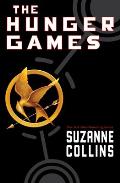 This novel opens with a fair amount of world-building details, but woven into the exposition, one sentence or so per paragraph over the course of the first four pages, is action to break up the infodump. Katniss gets out of bed. Spots her sister. Heads out of her house. Towards the fence. Oh, and, casual as you please, breaks the law. Katniss sneaks into the forbidden zone beyond the not-quite-electrified fence—offhandedly mentioning that most folks don’t go out there not because it’s illegal but because it’s dangerous—to meet Gale and hunt for food. There’s lots of subtext beneath today’s hunt: it’s reaping day, and Gale talks of running away, while Katniss wonders who would take care of her sister and her mother. But it’s not just talk, just like it’s not just worldbuilding. We’re also getting a look at what kind of character Katniss is—an active one.
This novel opens with a fair amount of world-building details, but woven into the exposition, one sentence or so per paragraph over the course of the first four pages, is action to break up the infodump. Katniss gets out of bed. Spots her sister. Heads out of her house. Towards the fence. Oh, and, casual as you please, breaks the law. Katniss sneaks into the forbidden zone beyond the not-quite-electrified fence—offhandedly mentioning that most folks don’t go out there not because it’s illegal but because it’s dangerous—to meet Gale and hunt for food. There’s lots of subtext beneath today’s hunt: it’s reaping day, and Gale talks of running away, while Katniss wonders who would take care of her sister and her mother. But it’s not just talk, just like it’s not just worldbuilding. We’re also getting a look at what kind of character Katniss is—an active one.
The Ghost and the Goth, by Stacey Kade
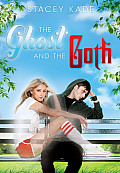 Another great read you should check out, if you haven’t already heard of it. This book opens with Alona sneaking out of gym class to make a phone call and berate someone. There’s all sorts of things we don’t know at the beginning—who is she calling? Why? But even though we don’t understand the particulars, we can see that Alona’s actively trying to fix something that’s bothering her. She’s got a Situation to unravel.
Another great read you should check out, if you haven’t already heard of it. This book opens with Alona sneaking out of gym class to make a phone call and berate someone. There’s all sorts of things we don’t know at the beginning—who is she calling? Why? But even though we don’t understand the particulars, we can see that Alona’s actively trying to fix something that’s bothering her. She’s got a Situation to unravel.
Too bad for her she gets hit by a bus first.
-o-
Look, I could keep at it all night, but I’ve got to think it will just get tedious, if it hasn’t already. The point is, here are real life examples from successful, talented writers, and their characters don’t wait around for the story to begin before they become active protagonists. From page one or very close to it, they’re take charge people. And when it’s too soon for us to have a clue what the big central conflict is—which is usually—they’re still actively protagging, they’re just focused on some other, temporary goal.
It’s not rocket surgery. Before I write a scene, I jot down what my character’s goal in this scene is. What is my POV character’s preferred outcome, that he or she is going to try to bring about. And I’m deeply suspicious when the answer is merely, “continued existence.” I don’t begin writing the scene until I have an answer to that question. And if it’s too soon to have the protagonist actively pursue the central goal of the story, then I make sure he or she has a short-term goal to focus on for now.
“But I found a book that doesn’t do this!”
Alright.
There’s all kinds of books out there. Not everybody is trying to write commercial fiction, and I certainly respect that someone else’s goals as a writer may be different. I love fiction that’s literary and smart and uplifting and thought-provoking, but in my own writing I want to be entertaining first, and then accomplish those other things if I’m up to it.
Can a book be entertaining if the protagonist isn’t trying to accomplish anything for the first sixty pages of a novel? Heck, I suppose anything’s possible. My friend and mentor Linnea Sinclair likes to say “Follow no rule off a cliff.” It’s a truism repeated by writers at all ability levels that rules are meant to be broken. But I think too many beginning writers use this as an excuse to uncritically throw advice out the window rather than going through the difficult task of mastering it.
Successful writers don’t break the rules, they transcend them. So if you see a great book that doesn’t do this, ask yourself what that writer is doing that’s making the book work and stay interesting. Ask yourself whether the book succeeds because the protagonist isn’t actively trying to change his or her world, or does it succeed in spite of this?
The Absolutely True Diary of a Part-Time Indian opens with a lengthy description by the narrator of all his health issues, and all the reasons why folks on the reservation are predisposed to see him as a loser. And then he tells us how poor he is and how much being poor sucks. But what Sherman Alexie has in this novel is an absolutely fantastic voice, and I’ll keep on following this kid around until he finally narrates a scene with a goal in it (page 17: Junior wants to go to the powwow without getting beat up) because he’s so damn compelling even without one.
But I think that kind of opening is the exception, not the norm. And even though it takes Junior a while to show us his goals, eventually he does start protagging in a big way: he makes the difficult decision to attend school off the reservation, knowing it will draw upon him the ire of whites and Indians alike.
I’d lay good money that for every beloved book you can find that doesn’t open with a protagonist who actively wants something, I can find two that do. Wanna take that bet?


















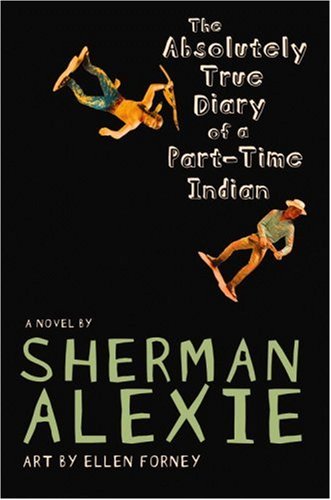


 Subscribe via RSS
Subscribe via RSS